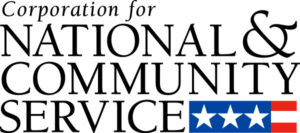Back in the late 1980s, when I got my first full-time nonprofit job, it was at a nonprofit professional theater. Within a year, Republicans began to attack the National Endowment for the Arts and the National Endowment for the Humanities, extending that fight to criticize a variety of live performances and art exhibits across the USA. The theater where I worked immediately joined coalitions to fight back and prepared blurbs for our donor newsletter. Management and other members of the coalition were vocal and didn’t shy away from what was happening. If it meant losing some patrons, so be it: this was too important to be silent about. It was then I learned that working at a nonprofit doesn’t mean immunity from politics. It was also then that I learned that, while it is inappropriate for a nonprofit, including any church, to tell people what person or party to vote for, they have EVERY right to say, “Please vote. And here are the statements by the candidates/parties regarding issues related to the cause we promote…”
In 2011, I wrote on my blog about Republicans plans to do what they are doing now. Yes, in 2011. And I was the lone voice among consultants and nonprofit bloggers going on record, in a big way, to talk about it. Maybe it cost me some consulting jobs. So be it.
At the start of the first Donald Trump presidency, I wrote a plea to USA nonprofits for the next four years (& beyond). I wrote about How that first term might affect humanitarian aid & development. Then I wrote, in 2017, about volunteers scramble to preserve online data before government deleted it. I wrote about Donald Trump trying to eliminate AmeriCorps and all national service programs in 2018 and again in 2019.
I wrote in 2019 about The Trust Crisis, and how there was a growing number of nefarious actors trying to get the public to stop trusting national institutions and nonprofits. The silence was deafening.
Again, I was mostly alone. YOU were silent. The Points of Light was silent. The Association of Leaders in Volunteer Engagement (AL!VE) was silent. Other consultants regarding volunteer engagement and nonprofit management and Tech4Good were silent. You were not allies. And I haven’t forgotten that. Perhaps you all thought everything would be resolved and undone in four years with a new election, and in some ways, you were right – there was a pause in the madness. But it was a pause. I warned you it would be just temporary unless you spoke out. You stayed silent.
On election day last year, I told you that folks needed post-election reassurances from your nonprofit and gave you advice on what to say. I then gave you a strategy for looking at local election results and preparing to reach out to newly elected officials.
On inauguration day this year, I told you that your nonprofit WILL be targeted with misinformation and you needed to prepare. Then I told you why your social media should focus on volunteering as much as possible. And I told you that your Nonprofit CAN Resist. Here’s how.
Some nonprofits not only ignored the advice, they wrote that it was never more important to avoid controversy. I remain stunned and outraged by such advice.
Silence will not preserve your nonprofit nor protect those it serves. It will just delay actions that will harm both.
Stop being silent. Start your redemption by following the National Council of Nonprofits on LinkedIn. Follow their President and CEO on BlueSky. They are one of the strongest voices in our sector against what is happening now.
If your nonprofit is part of a national coalition, find out what advocacy they are doing, what legislation they may be talking about in that section of “updates from headquarters” that you have always skipped over in favor of the section on upcoming grant guidelines. You have every right to tell your donors and volunteers and clients about legislation that might affect them, and how that legislation might affect them, and the phone numbers of their elected officials.
Every US conference for nonprofits, whether for wildlife centers or theaters, domestic violence shelters or hospices, museums or food banks, needs to have sessions on how to address the current political landscape. And I don’t mean just about disappearing government funding.
I don’t know what else I can say, except that I am angry about doing so much of this by myself for YEARS. I paid a price for it, and maybe I will pay an even bigger one later, with being so public in my opposition. But let me be clear: your cowardice is going to cost us all. And your silence probably goes against core beliefs your nonprofit proudly states on its web site. No more silence. Otherwise, your silence will be interpreted as approval.


 I really love this and I would love to see this guide built into all hackathons / hacks4good, the development of apps4good, etc.:
I really love this and I would love to see this guide built into all hackathons / hacks4good, the development of apps4good, etc.: